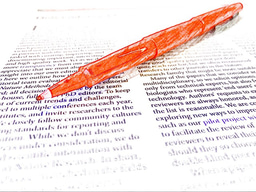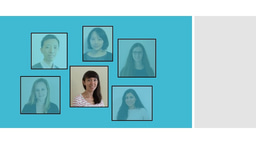Spotlight on Lei Tang, Nature Methods editor
Published in Protocols & Methods

Q: Where is your hometown?
LT: I grew up in Xi’an - one of the oldest cities in China. Xi’an is also the home to the Terracotta Army of Emperor Qin Shi Huang.
Q: Where did you go for undergrad and PhD?
LT: I did my undergrad in Tianjin University, and did my PhD work at Duke University under the supervision of Dr. Stefan Zauscher, where I studied template-free ssDNA synthesis methods using terminal deoxynucleotidyl transferase.
Q: When did you realize that you wanted to be a scientist?
LT: I realized that I wanted to become a scientist when I was working on my undergraduate research project. The project was about designing a nonviral vector for efficient gene transfection. At that moment, I realized that there are so many questions that we just do not have answers for and there is so much to explore in biology. I felt I would never get bored if I were a scientist.
Q: Why did you decide to leave the bench and become an editor?
LT: Being honest – I did not enjoy pipetting or waiting for centrifugation. I feel, as an editor, I can have my favorite parts of science, and leave out the pipetting and centrifuging.
Q: What do you like best about being an editor?
LT: As an editor, part of my job is to keep an eye on the cutting-edge research – I appreciate the opportunities to explore the broadness of science and constantly to update my “knowledge database”.
Q: What is your favorite place in the world to visit?
LT: There are many places that I’d like to visit in the world. Amsterdam is one of my favorite places. When I visited Amsterdam with two friends in 2013, it was my first time traveling in Europe. We biked around the city while it was snowing – it was amazingly beautiful.
Q: What is your favorite cuisine?
LT: Of course, Chinese! I also like Korean cuisine, particularly bibimbap.
Q: Have you read any good books lately?
LT: I like reading science fiction. Recently, I read Ted Chiang’s Exhalation that is a collection of short stories. I read Chiang’s “Story of your life” many years ago, which was adapted to the film Arrival in 2016.
Follow the Topic
-
Nature Methods

This journal is a forum for the publication of novel methods and significant improvements to tried-and-tested basic research techniques in the life sciences.
Related Collections
With Collections, you can get published faster and increase your visibility.
Methods development in Cryo-ET and in situ structural determination
Publishing Model: Hybrid
Deadline: Jul 28, 2026




Please sign in or register for FREE
If you are a registered user on Research Communities by Springer Nature, please sign in